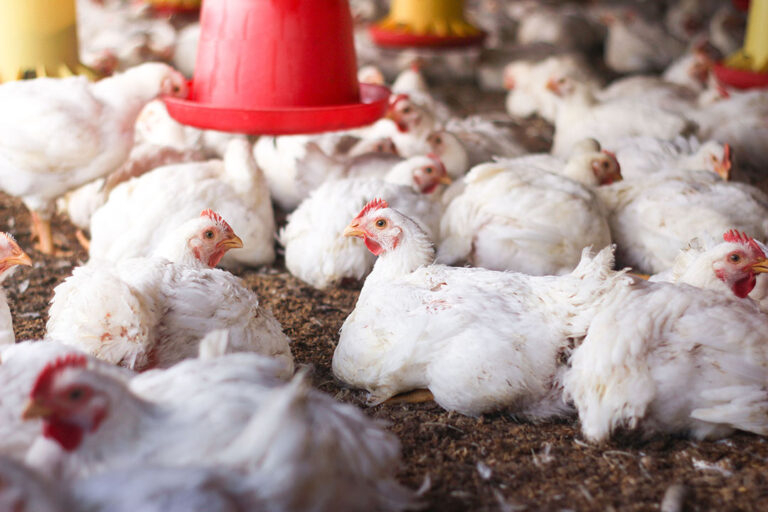June 21, 2025 | 01:08 GMT +7
June 21, 2025 | 01:08 GMT +7
Hotline: 0913.378.918
June 21, 2025 | 01:08 GMT +7
Hotline: 0913.378.918

In the EU, around 91,000 people are infected with Salmonellosis annually, a severe form of food poisoning. Photo: Canva
In the EU, around 91,000 people are infected with Salmonellosis annually. To limit the spread of Salmonella and other food-borne pathogens in the food chain, bacteriophage therapy can be used during rearing or pre-harvest stages of animal production.
This study was conducted to determine if a phage cocktail delivered in feed is capable of reducing Salmonella colonisation in experimentally-challenged chickens and to work out the optimal phage dose.
A total of 672 broilers were divided into 6 treatment control groups to test whether the bacteriophage was effective in differing doses. The liquid phage cocktail was added to mash diet with ad libitum access available throughout the study.
By the concluding day of the study (day 42), no Salmonella was detected in faecal sampled collected in one of the trials. Phage treatment at all 3 doses had a positive impact on growth performance in challenged birds with increased weight gains in comparison to challenged birds with no phage diet.
Researcher Dr Anisha Thanki, of the Leicester Centre for Bacteriophage Research, said: “We tested whether the bacteriophage product delivered in feed at different doses wiped out Salmonella in chickens over a 42-day period. We found that all those infected and treated with the lowest dose at the beginning of the trial, tested negative for Salmonella on day 42.
“It’s hugely exciting to have a developed a product which could help reduce infection in chickens and prevent Salmonella ultimately entering our food chain. If successfully commercialised it could reduce reliance on existing antimicrobials and potentially save the farming industry billions of pounds each year.”
Dr Natasha Whenham, head of innovation at AB Agri, said: “We are passionate about finding innovative technologies that enable responsible food production globally. AB Agri is proud to support ground-breaking research into novel solutions that help drive our industry towards a more sustainable future.”
(PW)

(VAN) Poultry production in Poland, which has only started recovering from devastating bird flu outbreaks earlier this year, has been hit by a series of outbreaks of Newcastle disease, with the veterinary situation deteriorating rapidly.

(VAN) Extensive licensing requirements raise concerns about intellectual property theft.

(VAN) As of Friday, a salmonella outbreak linked to a California egg producer had sickened at least 79 people. Of the infected people, 21 hospitalizations were reported, U.S. health officials said.

(VAN) With the war ongoing, many Ukrainian farmers and rural farming families face limited access to their land due to mines and lack the financial resources to purchase needed agricultural inputs.

(VAN) Vikas Rambal has quietly built a $5 billion business empire in manufacturing, property and solar, and catapulted onto the Rich List.

(VAN) Available cropland now at less than five percent, according to latest geospatial assessment from FAO and UNOSAT.

(VAN) Alt Carbon has raised $12 million in a seed round as it plans to scale its carbon dioxide removal work in the South Asian nation.